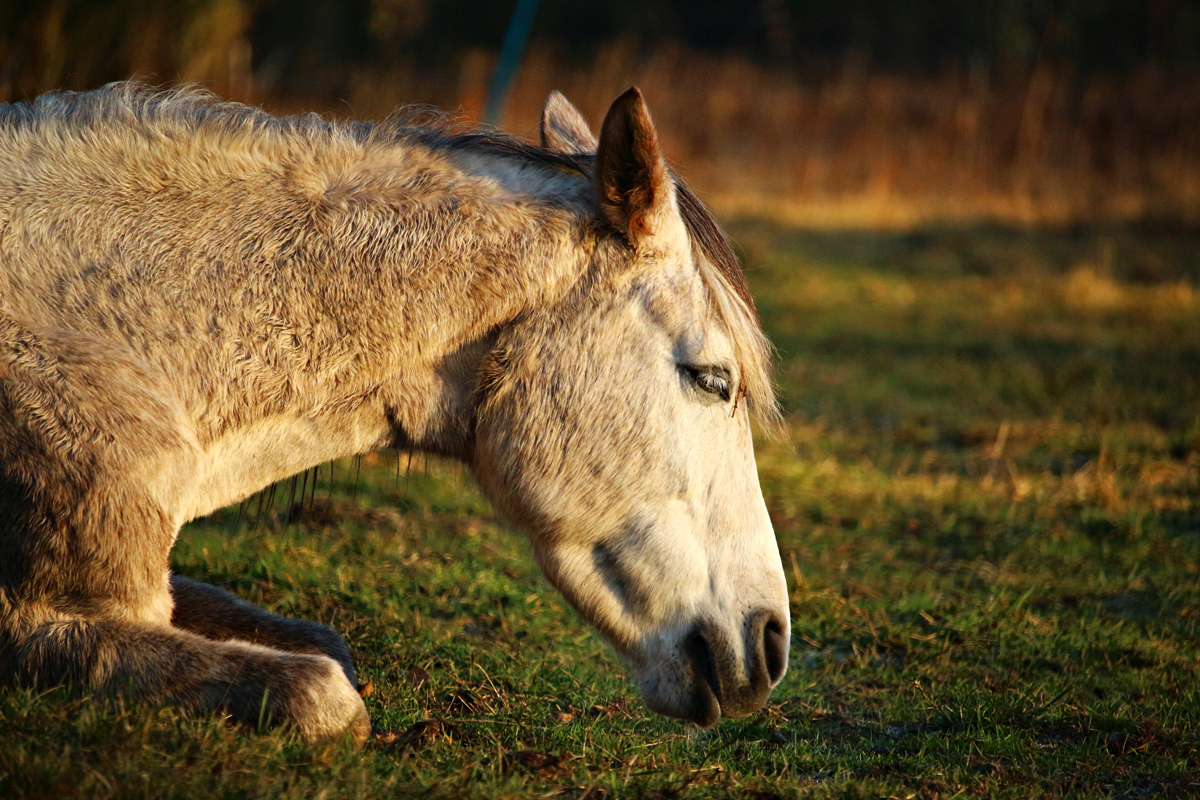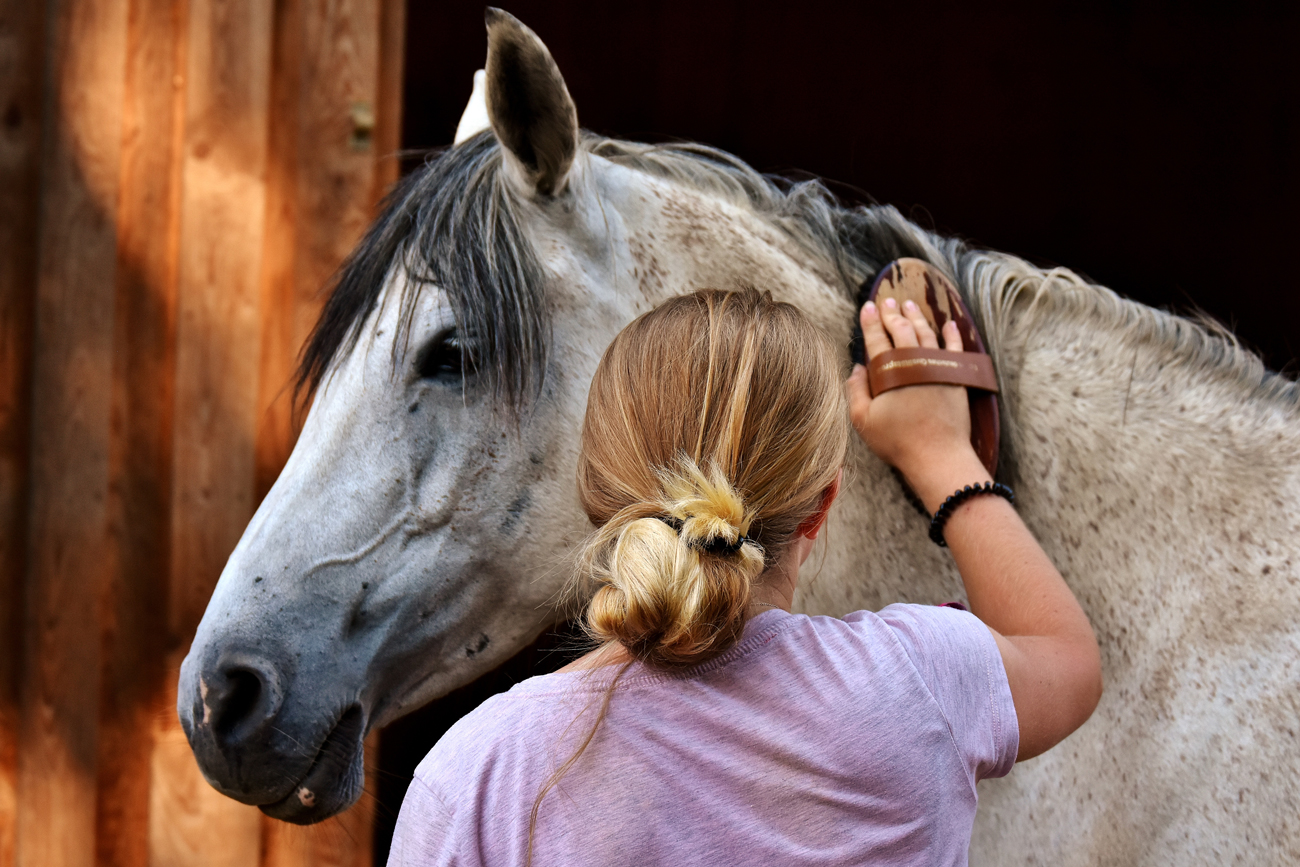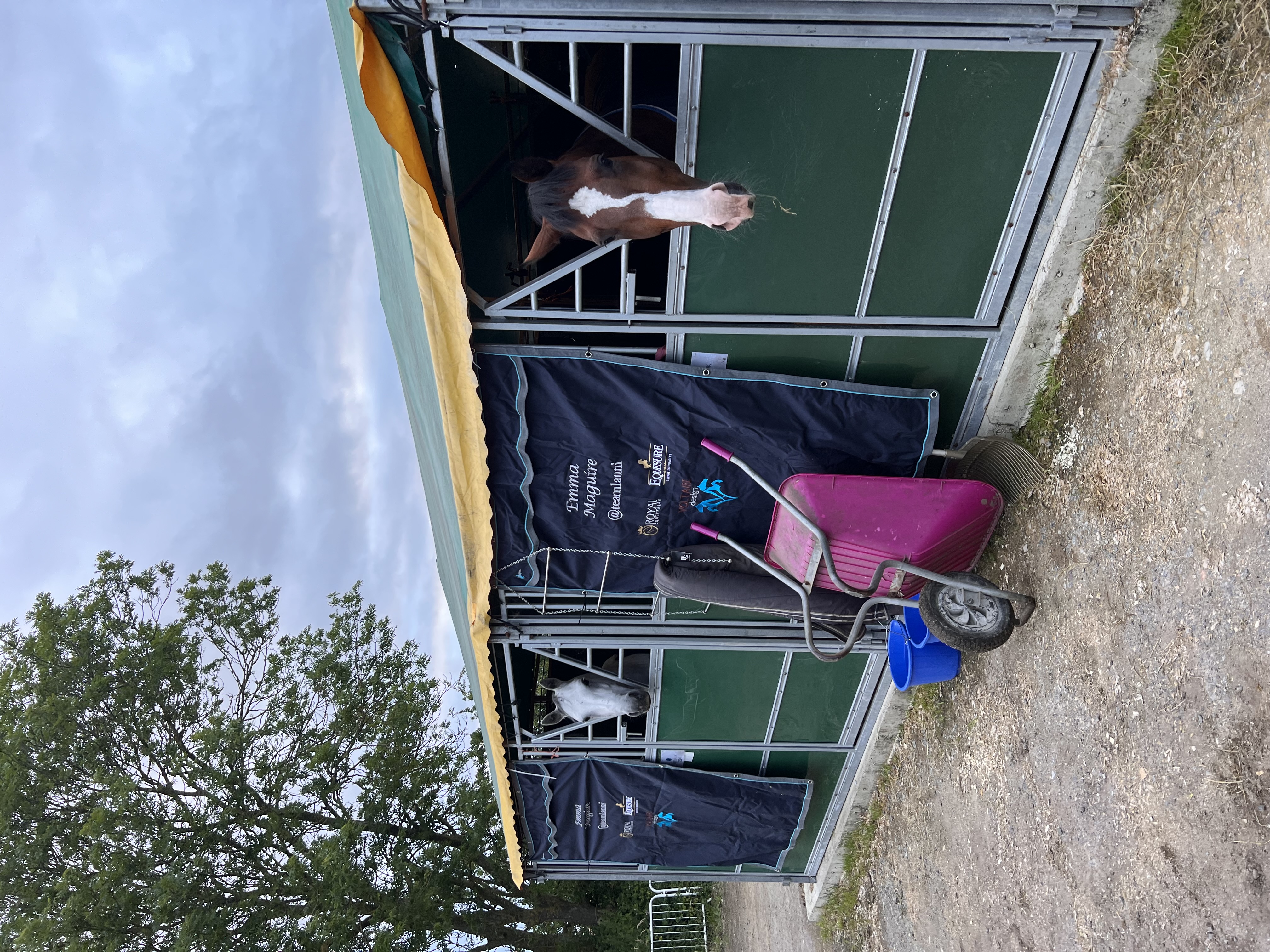With increased availability and potency of medicines and veterinary operations, horses are now living longer; strengthening the bond between horse and owner. However, this bond brings responsibilities, from providing comprehensive cover through horse insurance to their favourite salt lick. And when you’ve given your equine companion love and care throughout its life you’ll want to continue until the very end.
Putting a horse down (or euthanasia) is unfortunately a decision many owners have to face. If they fall sick, get badly injured during an accident or they’re just suffering in their old age, understanding the different options available will make it easier to make a decision when the time comes.
So, here’s a guide to help you assess when it’s the right time to say goodbye.
Key considerations
Some of the important questions to ask yourself before getting your horse put down include:
- How was your horse before the injury or illness?
- Has a vet seen your horse and considered its present condition?
- Do you have the resources to care for an old or ill horse properly?
- What are the cost implications of ongoing care?
- Have you spoken to your insurance company? What does your horse insurance cover?
When and why?
Apart from catastrophic illness or injury there is really no straightforward answer as to when euthanasia is justified. There are various reasons why a horse might be put down, including illness, an accident, change in circumstances or old age.
Like their owners, horses are individuals and assessing whether quality of life has deteriorated is difficult. Change can be gradual but the following points are useful to consider:
- Is the horse able to chew and eat comfortably? Horses need to eat throughout the day. If your horse is getting thinner this might indicate problems.
- Can the horse lie down and get up unaided? Or does it need help?
- When turned out into a field is the horse moving freely? Does it seem comfortable when walking or trotting?
- Is the horse being bullied by others? Can it mix freely?
- How is the horse’s general health? Is it suffering from ongoing chronic conditions that are affecting its wellbeing?
- Does the horse seem content? A lethargic and depressed horse, perhaps with dull eyes and coat, is clearly not happy.

The British Horse Society (BHS) has a handy chart to help you monitor and visualise all aspects of your horse’s general health and wellbeing. Use it to aid the assessment of quality of life.
Another instance in which euthanasia might be considered is if a horse has become too dangerous to handle or to ride and reasonable steps have failed to correct this.
Unfortunately, sometimes an owner’s circumstances have changed to such an extent that they are no longer able to care for the horse. In these cases, if there is no option for rehoming (such as the horse is old or otherwise unsafe) then euthanasia may be considered.
The BHS also has an initiative called Friends at the End designed to ensure that no one has to face the loss of their companion alone. More than 70 volunteers are on hand to support owners through this difficult process.
Always consult your insurance company to see what you are covered for. For example, benefits of horse insurance with Equesure can include vet fess up to £1,500 and death of horse cover up to £3,250.
How should the euthanasia take place?
There are two options available for euthanasia – lethal injection or shooting. Whichever method is chosen, it must be carried out by a qualified professional.
With lethal injection, a vet often gives a sedative to calm the horse and then administers a lethal overdose of anaesthetic drugs. The horse will eventually collapse and experience a rapid loss of consciousness.
Following death, it is not unusual for there to be muscle tremors, noises or twitching from the horse. This is not an indication that the euthanasia has been unsuccessful.
If using a gun, the horse must only be shot by a trained, competent person such as a vet, knackerman or slaughterman. The shot is directed at the horse’s forehead and this results in immediate death. Bleeding is to be expected and don’t be shocked if the horse’s limbs make sudden twitches when it is on the ground – these are normal reflexes.
Should you be with your horse?
As the Blue Cross points out, many owners will feel too emotional to be with their horse in the final moments, even though they have a very strong bond. If an owner feels they will become upset and stressed, and in turn this might stress the horse, they should say their goodbyes and leave the vet or slaughterman to do their job.
If your horse has a particularly strong bond with another equine, then it might be appropriate for the other animal to be there during euthanasia but ask the advice of your vet first.

Where should it take place?
When considering the right time to put a horse down, it is important to consider where it will happen and how the body will be disposed of following death. Obviously, in an emergency there are few options as to where euthanasia will take place.
If the horse is to be put down at home, the site of euthanasia must be carefully considered. If you plan to bury the horse then it is wise to be as close to the burial site as possible. However, as the Blue Cross explains, disposing of carcasses by burial is restricted by law and you should seek the advice of DEFRA (Department of Environment, Food and Rural Afairs) before choosing this option.
The knackerman can also take the horse’s body for incineration, which is the cheapest option for disposal, or you can have a private cremation. While this is popular with some owners, especially if they have owned the horse for a long time, it can be quite expensive.
The British Horse Society has an invaluable leaflet detailing all you need to know about horse euthanasia – download it today.
Protecting your horse and yourself for the future
No matter how much we cherish these beautiful creatures, the time will always come when we have to say goodbye to our horses.
Obtaining horse insurance from Equesure will provide you with a range of benefits. As well as providing emergency vet cover and cover for the death of your horse, our policies offer riders personal accident cover up to the value of £10,000 for juniors and £20,000 for adults.
Call our trusted team today to see how we can help.





